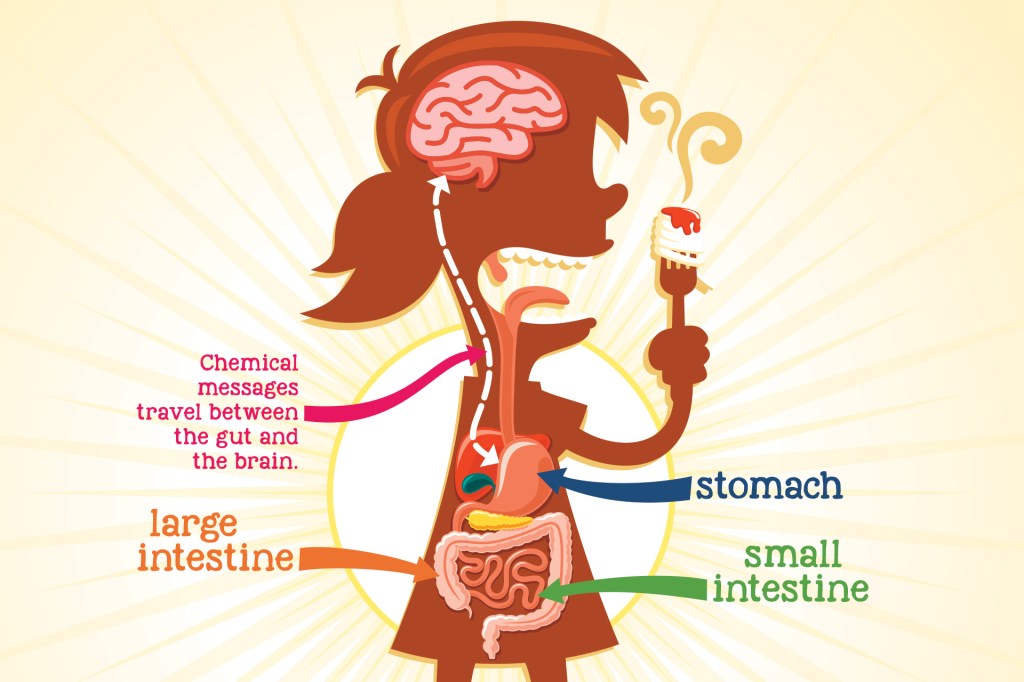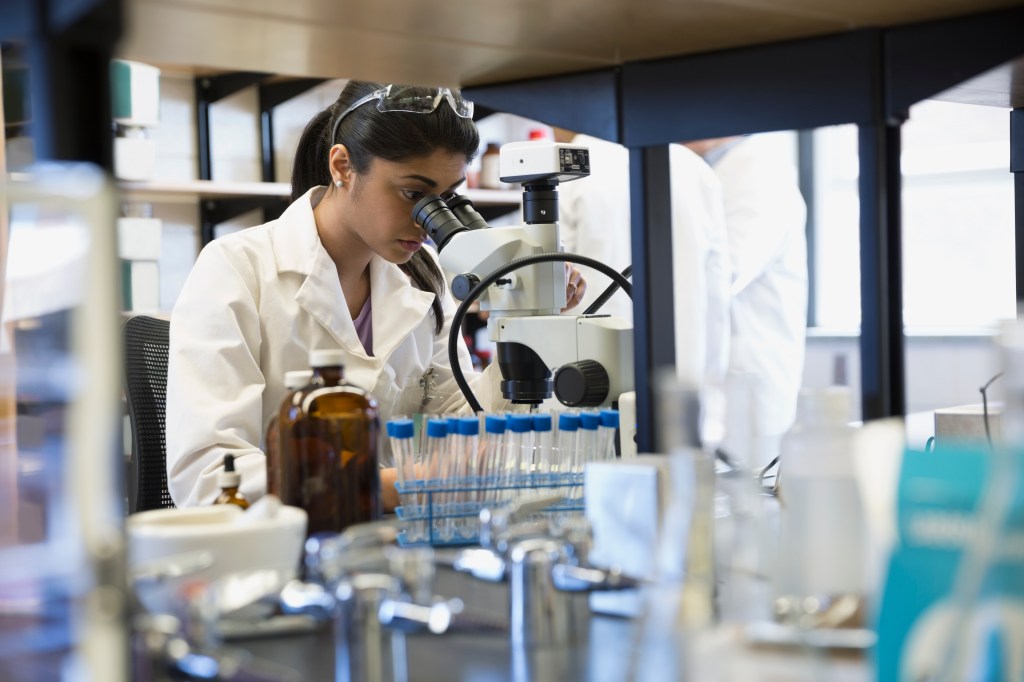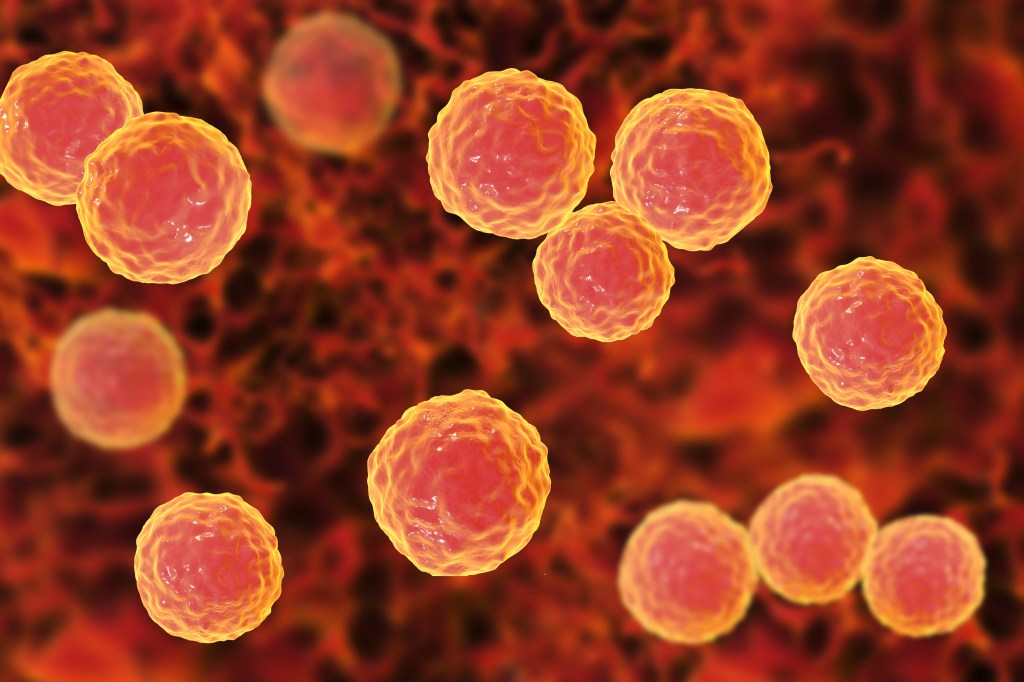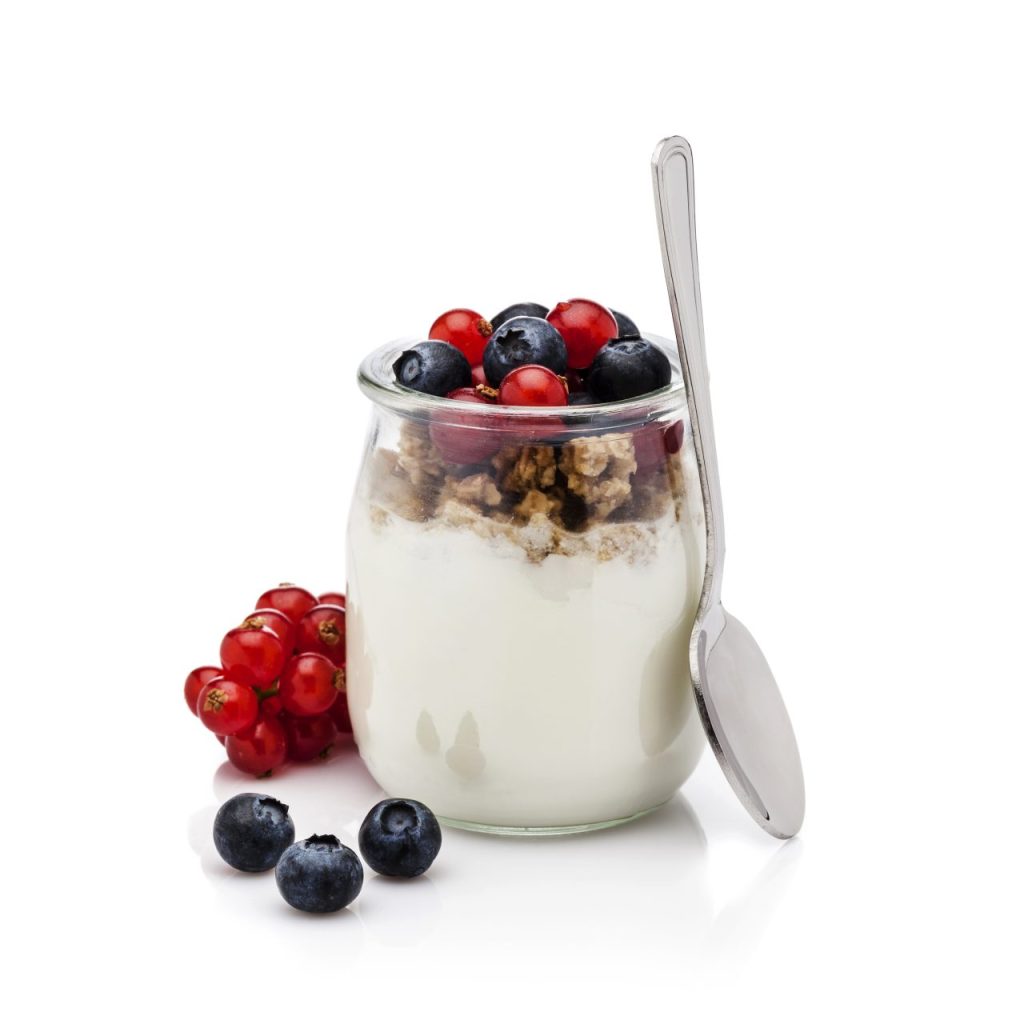Food for Thought

Margaret Morris is a scientist at the University of New South Wales, in Australia. She is giving her rats a memory test. She sets them in their usual box. But she has rearranged the objects inside. Some rats sniff them curiously. Others just move on. They don’t remember the objects were once in a different place.
The rats with sharper memory were fed a low-fat diet. The others gorged
gorge
 SW PRODUCTIONS/GETTY IMAGES
to consume in large amounts
(verb)
At the slumber party, we gorged on popcorn and candy.
for weeks on cake, chips, and cookies. They were forgetful.
SW PRODUCTIONS/GETTY IMAGES
to consume in large amounts
(verb)
At the slumber party, we gorged on popcorn and candy.
for weeks on cake, chips, and cookies. They were forgetful.
Junk food can affect people in the same way. “If you don’t eat enough fruit and veggies,” Morris told TIME for Kids, “the changes in your gut may affect brain function.” The gut can affect a person’s overall health, too.
Gut Check
Scientists have long known that the brain helps control digestion. It communicates with the stomach and intestines. But the gut talks back. It may even tell the brain what to do.
The gut’s power comes from the bacteria living inside it. This community of microbes
microbe
 HERO IMAGES/GETTY IMAGES
an extremely small living thing that can be seen only with a microscope
(noun)
The researcher examined microbes using a microscope.
is called the microbiome
microbiome
HERO IMAGES/GETTY IMAGES
an extremely small living thing that can be seen only with a microscope
(noun)
The researcher examined microbes using a microscope.
is called the microbiome
microbiome
 KATERYNA KON/SCIENCE PHOTO LIBRARY—GETTY IMAGES
a community of microorganisms that live in certain environment, such as the human body
(noun)
Many different types of bacteria live in the microbiome inside your intestines.
. It helps the digestive system break down food. It sends signals to the brain.
KATERYNA KON/SCIENCE PHOTO LIBRARY—GETTY IMAGES
a community of microorganisms that live in certain environment, such as the human body
(noun)
Many different types of bacteria live in the microbiome inside your intestines.
. It helps the digestive system break down food. It sends signals to the brain.
“Good” bacteria in your gut keep your mind sharp. They also protect against obesity and depression. Salty and sugary foods can wipe out these good bacteria.
Rob Knight is a scientist at the University of California, San Diego. He has studied bacteria living in the bellies of more than 10,000 people around the world.

SMART FOOD Look for yogurt with live cultures. It can keep your gut healthy.
FCAFOTODIGITAL/GETTY IMAGESKnight says yogurt is good for the gut. It is packed with healthy bacteria. French fries are okay once in a while. “It’s the long-term habits that really matter,” Knight says. “Being good to your microbiome over the next six months is a lot more important than what you ate yesterday, or what you eat tomorrow.”
Stop & Think! Why does the author cite studies by scientists? Do these studies add credibility to the story? Why or why not?













